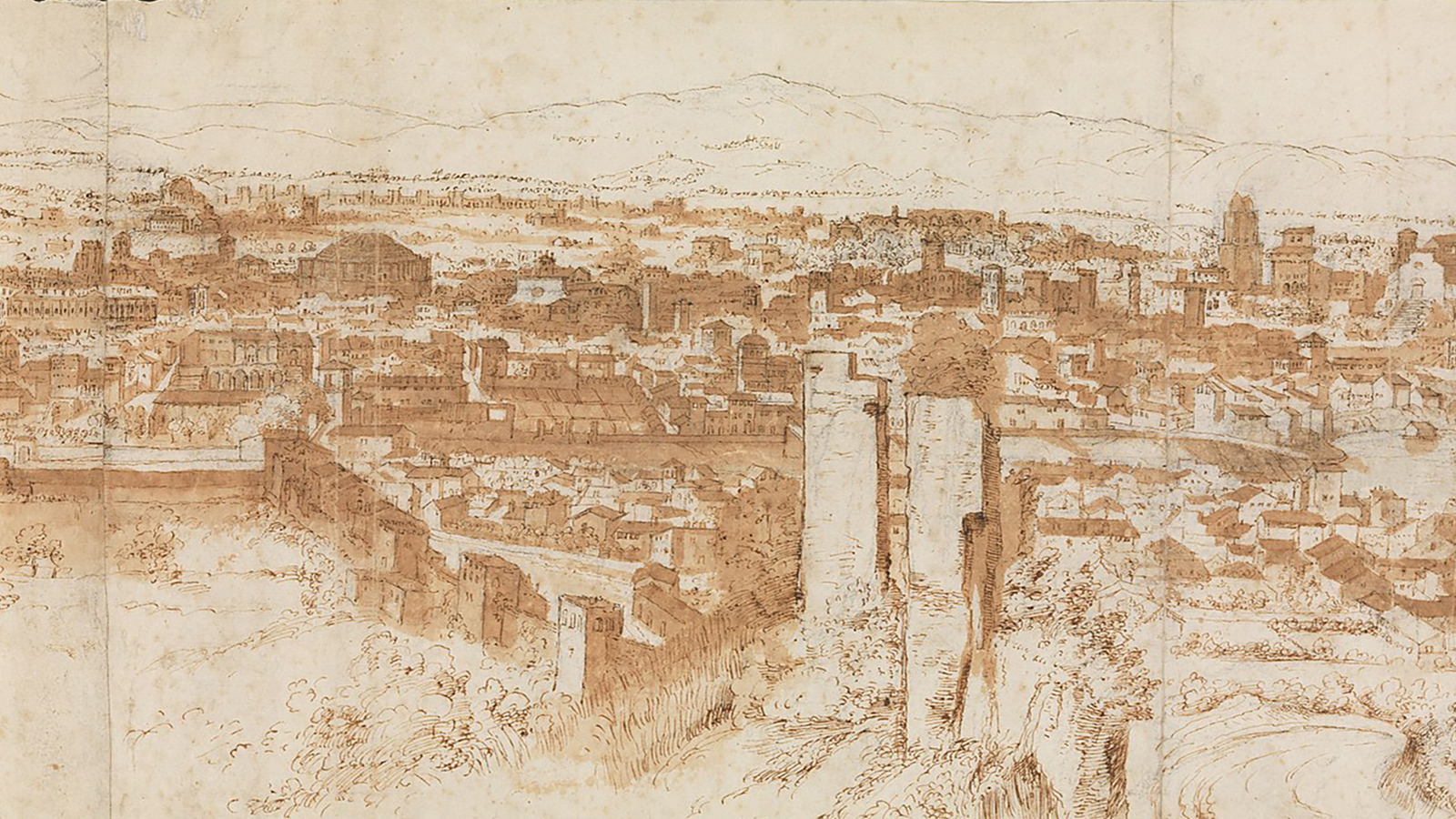Synnøve Midtbø Myking & Hanna-Mari Kupari – Circolo Gianicolense Seminar

View of Rome from the Janiculum in the South-West
Download a PDF of the poster for the event!
Circolo Gianicolense is a joint seminar series for fellows at three foreign research institutions at the Gianicolo: the Norwegian Institute in Rome, the American Academy in Rome, and Institutum Romanum Finlandiae.
This seminar, to be held in English, will include the following two talks:
Synnøve Midtbø Myking, Norwegian Insititute in Rome
Rome in the North
Dr. Synnøve Midtbø Myking, postdoctoral fellow at the Norwegian Institute in Rome (2024–2026), will present her research project Rome in the North: Biblioteca Apostolica Vaticana, Vat. Lat. 636 in Context. This project examines Scandinavian perceptions of Rome in the long twelfth century, using as its point of departure a manuscript in the Vatican Library that once belonged to the Cistercian abbey of Esrum in Denmark. The manuscript contains two compilations, each written in the late twelfth century, which both explicitly and implicitly highlight the status of Rome. What do the representations of Rome in manuscript tell us about how the city was perceived in twelfth-century Denmark, and to what extent do we find echoes of these representations in contemporary sources?
Hanna-Mari Kupari, Institutum Romanum Finlandiae, Doctoral Researcher, Digital Language Studies, University of Turku, Finland
Modeling Late Medieval Latin: Developing a Machine-Readable Dataset and Parsing Tools for Analyzing Apostolic Penitentiary Texts
Hanna-Mari Kupari’s paper focuses on Medieval Latin, which presents significant challenges for research due to its diverse documentary sources and varied language use. Central to her study are the penitentiary documents produced by the Apostolic See in the Vatican, spanning the 14th to 16th centuries. These Latin texts, comprising approximately 200,000 words and representing the non-literary genre, are impossible to analyze effectively without computational tools. To transform them into a resource for Digital Humanities research, as a first step, she has structured these edited documents into the Penitentiary Document Corpus (PeDoCo), a machine-readable dataset in TEI-XML enriched with precise metadata to be given to parsers.
A key methodological challenge in working with Medieval Latin is the lack of lemma-based search options and grammatical tagging. While recent automatic parsing tools enable the linguistic analysis of large corpora, they often do not function at an optimal level when introduced to out of domain data. This has created a need for developing Latin automatic morpho-syntactic parsers based on Universal Dependencies (UD) annotation. Her paper presents newly developed models designed to improve parsing within the UD framework. As a case study, she will discuss specific challenges encountered when applying the UD framework to build a treebank of the PeDoCo. This analysis bridges three key perspectives: the linguistic features of Medieval Latin, the documentary genre and historical context of late medieval sources, and the application and development of natural language processing (NLP) methods. By integrating these three perspectives, her work develops tools for Latin and offers a computationally driven analysis that deepens our understanding of non-literary Medieval Latin texts.
The seminar will be held in English.
I visitatori dell’American Academy in Rome sono pregati di mostrare un documento d’identità all’ingresso. Non è possibile accedere con bagagli o zaini di dimensioni superiori a cm 40 x 35 x 15. Non sono disponibili armadietti né guardaroba. Non è permesso portare animali (ad eccezione dei cani guida).
L’Accademia è accessibile agli utenti in sedia a rotelle e a coloro che devono evitare le scale. Si prega di inviare una email all’indirizzo tours@aarome.org se voi o qualcuno del vostro gruppo utilizza una sedia a rotelle o altri dispositivi di mobilità, così da poter garantire la migliore facilità di accesso ai visitatori. Se siete persone con disabilità o condizioni mediche che potrebbero richiedere particolari accorgimenti, vi preghiamo di inviarci un’email all’indirizzo tours@aarome.org.